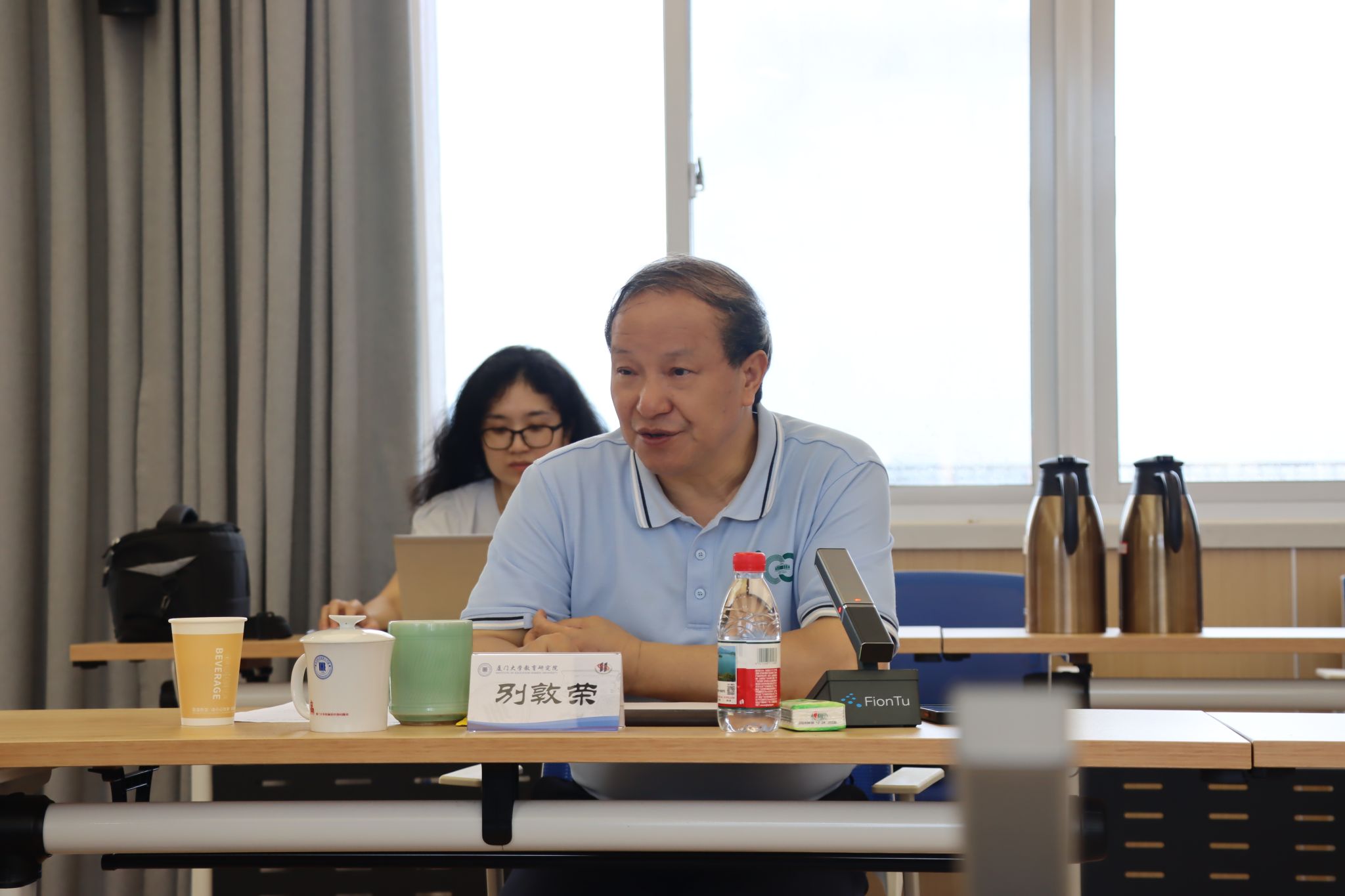On the morning of June 15, 2025, the research colloquium for the China Higher Education Association’s project “Index of Higher-Education Development” was successfully held in Room 502 of the Institute of Education, Xiamen University. Leaders in attendance included Zhang Daliang (Vice-President of the Association), Hao Qingjie (Deputy Secretary-General), Gao Xiaojie (Director of the Academic & Exchange Department) and Ye Yan (Program Officer). Representing Xiamen University were Bie Dunrong (Dean of the Institute), Zhao Tingting (Vice-Dean), Xiao Tong (Assistant Professor) and other project-team members. The meeting was chaired by Deputy Secretary-General Hao Qingjie.

Dean Bie Dunrong delivered a welcoming address on behalf of the Institute of Education, Xiamen University. He began by reviewing the institute’s development history and achievements, outlining its current key research directions and major initiatives. Dean Bie expressed heartfelt gratitude to the China Higher Education Association for its continued guidance and support, and pledged that the institute will further intensify its commitment to the “Index of Higher-Education Development” project to generate innovative findings. He also affirmed the institute’s readiness to take an active part in the association’s future research endeavors and to contribute even more substantially to its development.

Vice-Dean Zhao Tingting, speaking for the research team, gave a comprehensive progress report. She detailed the purpose and conceptual roadmap behind the Index of Higher-Education Development, presented the indicator architecture, variable-selection criteria, country sampling strategy, data-collection and processing procedures, index-calculation methodology, and preliminary findings. Particular emphasis was placed on the five rounds of revisions the indicator framework has undergone, with a step-by-step explanation of the rationale and guiding principles that shaped each redesign.

During the open discussion, leaders and specialists fully endorsed the project’s conceptual clarity, systematic design, and scientifically sound methods, while offering targeted recommendations. Vice-President Zhang Daliang stressed that index construction must align with the Education Powerhouse 2035 blueprint, deftly balancing Chinese characteristics with international comparability. He proposed that indicators be built around “five dimensions of measurement”: (1) quantity—how much exists; (2) quality—how good it is; (3) weight—how great its contribution; (4) increment—how fast it grows; and (5) vector—whether it moves in the correct direction, embraces proper values, follows sound scholarship, and trends toward higher efficacy. Deputy Secretary-General Hao Qingjie and Director Gao Xiaojie urged the team to highlight China’s recent higher-education achievements to accentuate national distinctiveness and elevate the project’s impact.
Vice-Dean Zhao Tingting responded that the team will carefully integrate these suggestions, refine its approach, and strive to produce a scientifically rigorous Higher-Education Development Index that is both internationally comparable and unmistakably Chinese.